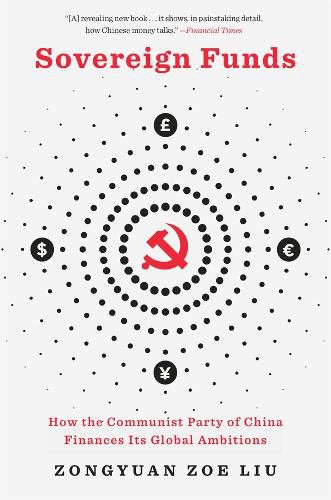Readings Newsletter
Become a Readings Member to make your shopping experience even easier.
Sign in or sign up for free!
You’re not far away from qualifying for FREE standard shipping within Australia
You’ve qualified for FREE standard shipping within Australia
The cart is loading…






"A fascinating insight into the evolution of China's financial policy and its strategic investments using leveraged foreign exchange reserves." -Diane Coyle, Enlightened Economist?
"[Liu] shows that Chinese sovereign funds are so different from better-known sovereign wealth funds, such as those of the governments of Abu Dhabi and Norway, that she prefers to call them 'sovereign leveraged funds'...These various exotic workarounds, which Liu skillfully traces, produce 'shadow reserves.'" -Andrew J. Nathan, Foreign Affairs??
"Follow the money, find the politics...Liu shows how China pioneered a whole new class of sovereign wealth funds." -Times of India?
One of the keys to China's global rise has been its strategy of deploying sovereign wealth on behalf of state power. Since President Xi Jinping took office in 2013, China has doubled down on financial statecraft, making shrewd investments with the money it has made by leveraging its foreign exchange reserves. Sovereign Funds tells the story of how the Communist Party of China (CPC) became a global financier of surpassing ambition.?
Zongyuan Zoe Liu offers a comprehensive and up-to-date analysis of the evolution of China's sovereign funds, including the China Investment Corporation, the State Administration of Foreign Exchange, and Central Huijin Investment, showing how these institutions have become mechanisms not only for transforming low-reward foreign exchange reserves into investment capital but also for power projection. Sovereign funds are essential drivers of the national interest, shaping global markets, advancing the historic Belt and Road Initiative, and funneling state assets into strategic industries such as semiconductors, fintech, and artificial intelligence. Liu uncovers how the CPC is a leader in both foreign exchange reserves investment and economic statecraft, using state capital to encourage domestic economic activity and create spheres of influence worldwide.
$9.00 standard shipping within Australia
FREE standard shipping within Australia for orders over $100.00
Express & International shipping calculated at checkout
"A fascinating insight into the evolution of China's financial policy and its strategic investments using leveraged foreign exchange reserves." -Diane Coyle, Enlightened Economist?
"[Liu] shows that Chinese sovereign funds are so different from better-known sovereign wealth funds, such as those of the governments of Abu Dhabi and Norway, that she prefers to call them 'sovereign leveraged funds'...These various exotic workarounds, which Liu skillfully traces, produce 'shadow reserves.'" -Andrew J. Nathan, Foreign Affairs??
"Follow the money, find the politics...Liu shows how China pioneered a whole new class of sovereign wealth funds." -Times of India?
One of the keys to China's global rise has been its strategy of deploying sovereign wealth on behalf of state power. Since President Xi Jinping took office in 2013, China has doubled down on financial statecraft, making shrewd investments with the money it has made by leveraging its foreign exchange reserves. Sovereign Funds tells the story of how the Communist Party of China (CPC) became a global financier of surpassing ambition.?
Zongyuan Zoe Liu offers a comprehensive and up-to-date analysis of the evolution of China's sovereign funds, including the China Investment Corporation, the State Administration of Foreign Exchange, and Central Huijin Investment, showing how these institutions have become mechanisms not only for transforming low-reward foreign exchange reserves into investment capital but also for power projection. Sovereign funds are essential drivers of the national interest, shaping global markets, advancing the historic Belt and Road Initiative, and funneling state assets into strategic industries such as semiconductors, fintech, and artificial intelligence. Liu uncovers how the CPC is a leader in both foreign exchange reserves investment and economic statecraft, using state capital to encourage domestic economic activity and create spheres of influence worldwide.